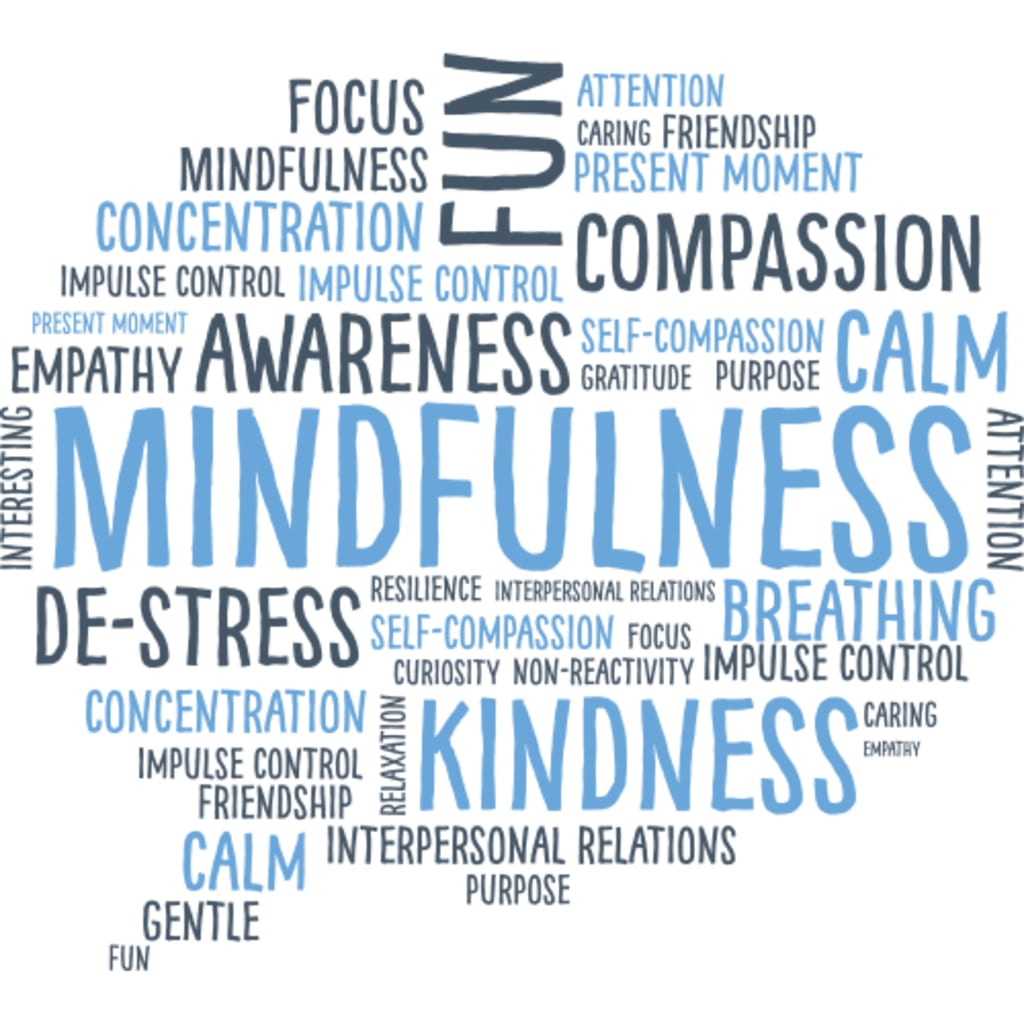The Art of Mindfulness
7 Simple Techniques for Reducing Stress

In our fast-paced world, stress has become a common companion for many, affecting our mental well-being and overall health. Fortunately, there's a powerful tool that can help us find peace amidst the chaos – mindfulness. Mindfulness is the practice of being fully present, aware of our thoughts, emotions, and surroundings without judgment. In this article, we'll explore seven simple mindfulness techniques that can alleviate stress and promote a calmer, more balanced life.
1. Mindful Breathing
Begin by finding a quiet space where you can sit comfortably. Close your eyes and focus on your breath. Feel the air entering your nostrils, filling your lungs, and then slowly leaving your body. Pay attention to each breath without trying to change its rhythm. Engaging in mindful breathing for just a few minutes a day can help calm the mind and reduce stress levels.
2. Body Scan Meditation
Lie down or sit in a comfortable position, and bring your attention to different parts of your body, starting from the toes and moving upward. Notice any tension or sensations without judgment, and gently release any discomfort you may feel. The body scan meditation allows you to become more in tune with your physical self and release physical stress.
3. Mindful Walking
Take a break from your hectic day and go for a mindful walk. Feel the ground beneath your feet, the breeze against your skin, and the sounds of nature around you. Whenever your mind starts to wander, gently bring your focus back to the present moment. Mindful walking helps anchor your thoughts to the here and now, providing a sense of peace and clarity.
4. Gratitude Practice
Expressing gratitude is a powerful way to shift our focus from stress to positivity. Each day, take a few moments to write down three things you are grateful for. These can be simple pleasures, like a warm cup of tea or a friendly smile. Practicing gratitude fosters a mindset of abundance, reducing the grip of stress and cultivating a sense of contentment.
5. Mindful Eating
Mindful eating involves savoring each bite, paying attention to the taste, texture, and aroma of your food. Slow down and chew your food thoroughly, enjoying each mouthful. Avoid distractions like screens or work during meals. This practice not only enhances digestion but also helps you appreciate the nourishment your meals provide, reducing stress-related eating habits.
6. Loving-Kindness Meditation
Sit comfortably and focus on sending love and compassion to yourself and others. Start by offering kind thoughts to yourself, such as "May I be happy, may I be healthy, may I be at peace." Then, extend these sentiments to loved ones, acquaintances, and even to those you may find difficult. Loving-kindness meditation fosters empathy and reduces stress by cultivating feelings of goodwill towards all beings.
7. Mindful Technology Use
In our digital age, technology can be a significant source of stress. Practice mindful technology use by setting designated times to check emails or social media. When using your devices, be fully present and avoid multitasking. Mindfulness in technology helps prevent the constant stimulation and overwhelm that contribute to stress.
Conclusion
Incorporating mindfulness into our daily lives can transform the way we respond to stress and cultivate a more balanced and harmonious existence. By embracing mindful breathing, body scan meditation, mindful walking, gratitude practice, mindful eating, loving-kindness meditation, and mindful technology use, we can build resilience and find solace in the present moment. Through these simple yet profound practices, we embark on a journey towards inner peace and well-being, one mindful breath at a time.






Comments
There are no comments for this story
Be the first to respond and start the conversation.